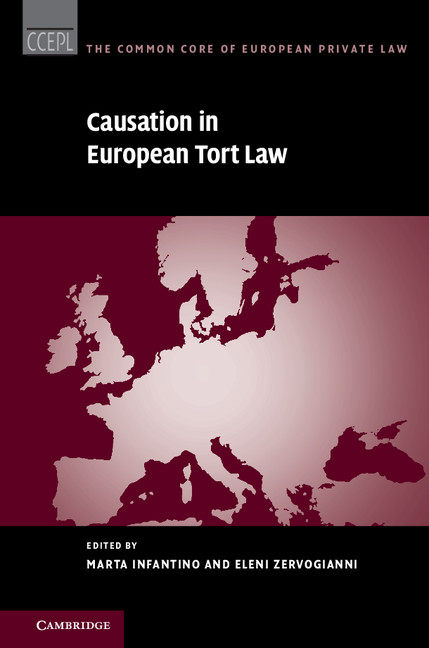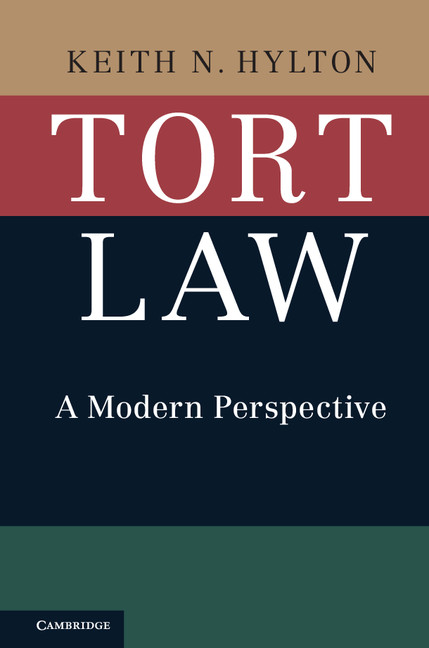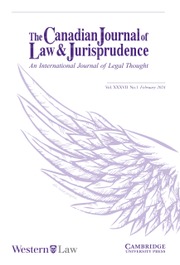Torts and Retribution
Torts and Retribution is the first work of its kind to offer a comprehensive analytical retributive framework for punitive damages across legal jurisdictions. It expands the scope of tort theory by unchaining it from the canonically exclusive perspective of the defendant by integrating the long-overlooked perspective of victims of reprehensible wrongdoing seeking punitive awards. Its cross-disciplinary approach brings to tort theory insights from empirical research on social cognition and theoretical debates over the retributive justifications for the imposition of punishment under a conceptual framework coined Relational Retribution. This framework suits both the bilateral structure of tort law and the proactive role allocated to the victim in tort litigation. By recognizing the fundamental connection between the defendant and the plaintiff, Relational Retribution focuses both on punishment as the imposition of a deserved sanction and on the significance of the wrongdoing for the victims and their demand for denunciation and value affirmation.
- Fills a critical gap in tort theory by offering a novel theoretical justification for the retributive dimension of tort law embedded in punitive damages
- Introduces a cross-disciplinary approach that enriches tort law with insights from literature on social cognition and victim's retributive motivations
- Provides greater clarity and precision about the practical operation of punitive damages
Reviews & endorsements
‘Brimming with comparativist insights, Torts and Retribution should be read by legal scholars and practitioners throughout the world. The book deepens our theoretical conception of punitive damages and, in the process, expands our understanding of tort law itself.’ Douglas A. Kysar, Joseph M. Field ’55 Professor of Law, Yale University
‘An original and lucid contribution to the fields of torts and private law, Torts and Retribution deploys erudition from across the Atlantic world to offer a powerful answer to a longstanding conundrum. None of our existing paradigms adequately explains the persistence of punitive damages. But María Guadalupe Martínez Alles now bids to supply the best answer in years. Ranging from moral theory and private law doctrine to consumer protection in the mass marketplace, this book is an instant classic.’ John Fabian Witt, Allen H. Duffy Class of 1960 Professor of Law, Yale University
‘Torts and Retribution stands on its head the belief that punitive damages are an anomalous intrusion of criminal law concerns into a legal field whose role is to repair, not to punish. Integrating insights from philosophy and psychology with lay intuition, Torts and Retribution argues that punitive damages paid by egregious wrongdoers to those they have wronged are a fitting response to serious mistreatment. Without them, the law of torts would be a less complete institution. This deeply thoughtful and persuasive book will change the way that anyone interested in torts thinks about the field.’ Gregory Keating, William T. Dalessi Professor of Law and Philosophy, USC Gould School of Law
‘In this bold and humane reparative work, María Guadalupe Martínez Alles envisions the remedy of cash damages as attentive to the significance of the wrong that injured a plaintiff. Torts and Retribution: The Case for Punitive Damages elegantly locates compassion, dignity, and justice in the punishment that private law can deliver.’ Anita Bernstein, Anita and Stuart Subotnick Professor of Law, Brooklyn Law School
‘No better book has been written to challenge conventional thinking about the boundary between criminal law and tort. Specialists in both fields will be required to rethink their preconceptions.’ Douglas Husak, Distinguished Professor of Philosophy (Emeritus), Rutgers University
‘Martínez Alles has produced a valuable book examining the important question of the best way to understand what retribution is, and what tort law might need it for. Her relational retribution highlights the victim of a tort in a novel way and is a useful contribution to debates held in many legal systems, most obviously to common law punitive damages, but more widely to things like ‘civil fines’ and ‘civil punitive sanctions’ found in civilian systems.’ Matthew Dyson, Professor of Civil and Criminal Law, University of Oxford
Product details
August 2025Hardback
9781009567893
330 pages
229 × 152 mm
Not yet published - available from August 2025
Table of Contents
- Introduction: tort law punishes
- I. The Place of Punishment in Torts:
- 1. Punishment is part of tort law
- 2. Punishment in tort theory
- II. The Retributive Rationale:
- 3. The punitive puzzle: shifting away from deterrence
- 4. Relational retribution
- 5. Overcoming compensatory reductionism
- III. Retribution in the Mass-Market Setting:
- 6. Understanding the collective context of wrongdoing
- 7. Punitive damages as retributive sanctions for violations of societal trust
- 8. Product liability, risk regulation and new technologies
- IV. Why Tort Law:
- 9. The significance of the tort victim
- 10. The significance of the tort process
- Conclusion: reconciling torts and retribution.






